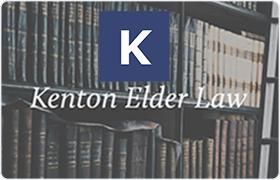Millersburg Estate Lawyer, Kentucky
Sponsored Law Firm
-
 x
x

Click For More Info:
-
Kenton Elder Law
713 College Rd Paris, KY 40361» view mapEstate Law Helping Generation After Generation
Kenton Elder Law works with families to ensure smooth financial transitions and long term care arrangements as older adults move into later stages of life.
800-932-7301
Carolyn Lips Kenton
✓ VERIFIED *Status is reviewed annually. For latest information visit hereEstate
Carolyn Kenton founded Kenton Elder Law to continue her work with legal issues of the older client. A former partner in Bluegrass Elderlaw PLLC and a ... (more)
M. Benjamin Shields
Estate Planning, Family Law, Insurance, Real Estate
Status: In Good Standing *Status is reviewed annually. For latest information visit here
Brian Keith Privett
Car Accident, Civil Rights, Divorce, Workers' Compensation, Wills & Probate
Status: In Good Standing *Status is reviewed annually. For latest information visit here
Sam W Arnold
Trusts, Estate, Family Law
Status: In Good Standing *Status is reviewed annually. For latest information visit here
Alan B Peck
Wills & Probate, Corporate, Business Organization, Banking & Finance
Status: In Good Standing *Status is reviewed annually. For latest information visit here Licensed: 57 Years
Farrah Williams Ingram
Real Estate, Estate Planning, Family Law, Insurance
Status: In Good Standing *Status is reviewed annually. For latest information visit here Licensed: 23 Years
Keen Johnson
Criminal, Family Law, Wills & Probate, Elder Law
Walter C. Cox, Jr.
Estate, Estate Planning, Trusts, Power of Attorney, Elder Law
Status: In Good Standing *Status is reviewed annually. For latest information visit here
FREE CONSULTATION
CONTACTDouglas Trent Hawkins
Estate, Wills & Probate, Divorce & Family Law, Accident & Injury
Status: In Good Standing *Status is reviewed annually. For latest information visit here
FREE CONSULTATION
CONTACTJoEllen S McComb
Education, Trusts, Labor Law, Civil Rights, Estate
Status: In Good Standing *Status is reviewed annually. For latest information visit here
 Carolyn Kenton Paris, KY
Carolyn Kenton Paris, KY Practice AreasExpertise
Practice AreasExpertise
